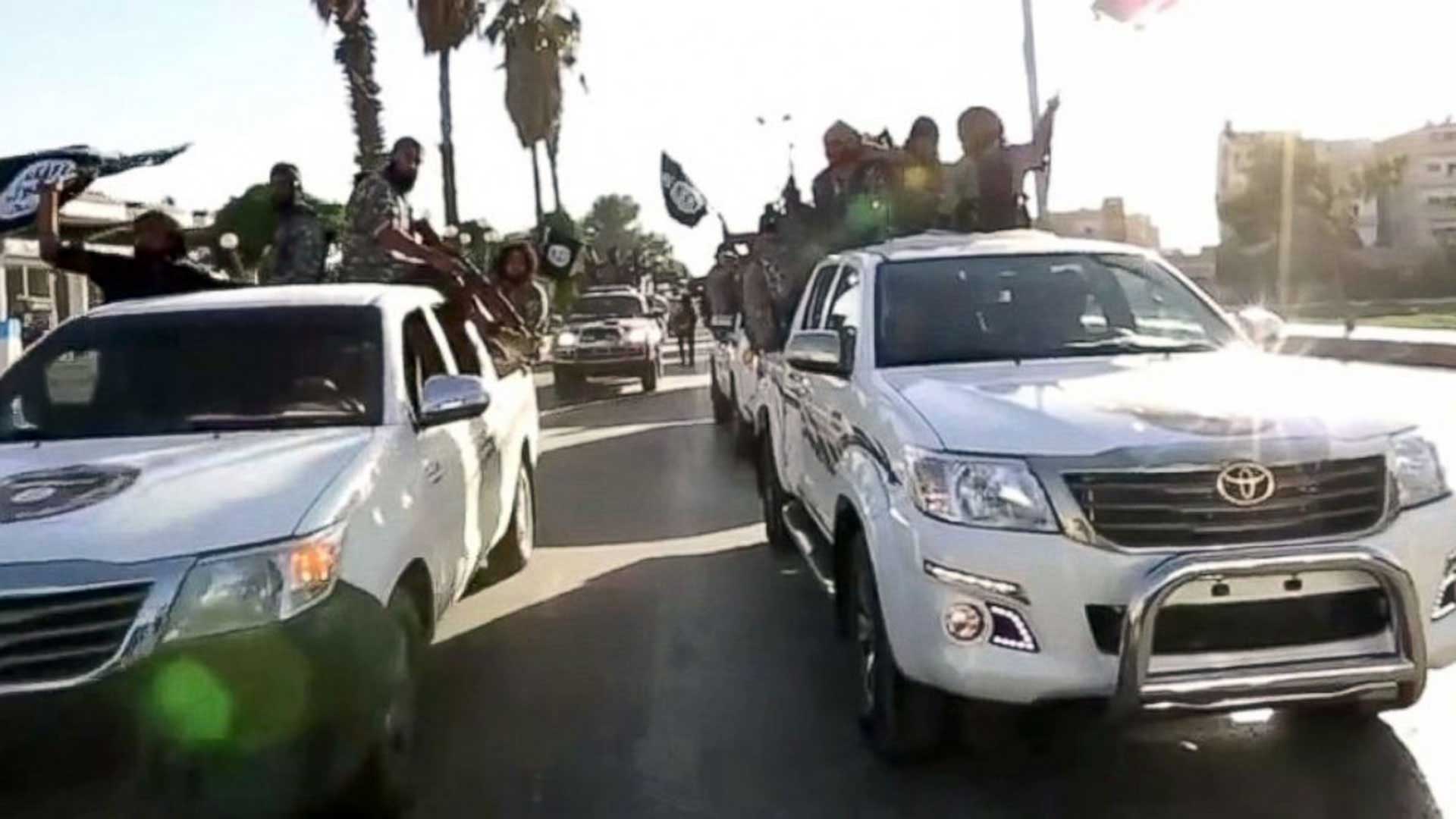

More terrorists choose Toyotas than any other brand. There is no J.D. Power study observing the sour association between young, disgruntled, fundamentalist hoodlums and the Toyota Hilux pickups and Land Cruiser SUVs they pile into (and onto), war flags waving in the breeze. But since the 1970s, it has officially been a thing.
The U.S. Treasury Department wants to know how the so-called Islamic State, comprised of jihadist militants who broke away from al-Qaeda within Iraq, has been able to acquire so many Toyotas. And we’re not talking circa-1988 Hiluxes with faded Baathist slogans on their lift gates. Many look showroom-fresh. According to Automotive News, a formal investigation is underway by the Treasury’s terror financing division. Motorcade shots of identical, late-model Toyotas (with the obligatory dozen or more men crowding each vehicle) have been circling the Internet for some time. Opposed to many of the vehicles the Taliban uses in Afghanistan, these aren’t old, clapped-out desert trucks.
As the world’s largest automaker, Toyota makes products that are popular, affordable, incredibly reliable and inexpensive to maintain. There are few places on earth where a Toyota hasn’t gone. And like any car, people are free to do awful things with Toyotas that the company itself would never anticipate or condone. Nevertheless, Toyota has felt compelled to comment on the phenomenon.
“It is impossible for any automaker to control indirect or illegal channels through which our vehicles could be misappropriated, stolen or resold,” the company said in a statement. “Toyota has a strict policy to not sell vehicles to potential purchasers who may use or modify them for paramilitary or terrorist activities.”
As it should. But while the investigation plays out, Toyota’s Middle East and African distributors are surely selling cars to average citizens and businesses who may or may not have unseemly ties. No matter what, good vehicles can always get in the hands of very bad people.